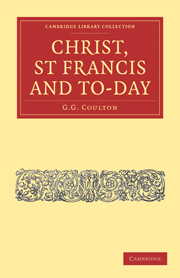Summary
AT the end of my last lecture, I reminded you of the Pauline plea, ‘ye are bought with a price.’ Dr Rashdall has shown us the strange vicissitudes of this Christian doctrine of redemption, which to St Paul is a matter not of argument but of feeling. Origen, and other early fathers, expound the term with crude legal materialism: Adam's sin gave the human race to the devil, and God must be just even to the devil: therefore our souls cannot bebought back except by paying to the devil something more precious than they—Christ's blood. St Anselm, eight hundred years ago, took one decisive step away from this unspiritual conception. Without shaking himself altogether free from the legal theory, he did much to spiritualize it; the dispute, according to him, is not between God and the devil, but between God's justice and God's mercy; and it is Christ's sacrifice which turns the scale. It was Abelard, Anselm's younger contemporary, who finally got rid of the legal conception altogether, and explained redemption as the modernist would explain it to-day. The perfect love shown in that sacrifice, he argues, commands our love in return; Christ's is the supreme example of what Dante afterwards called ‘inexorable love’—amor, che a nullo amato amar perdona—and the soul that truly loves is a soul redeemed from sin.
- Type
- Chapter
- Information
- Christ, St Francis and To-day , pp. 134 - 155Publisher: Cambridge University PressPrint publication year: 2010First published in: 1919

